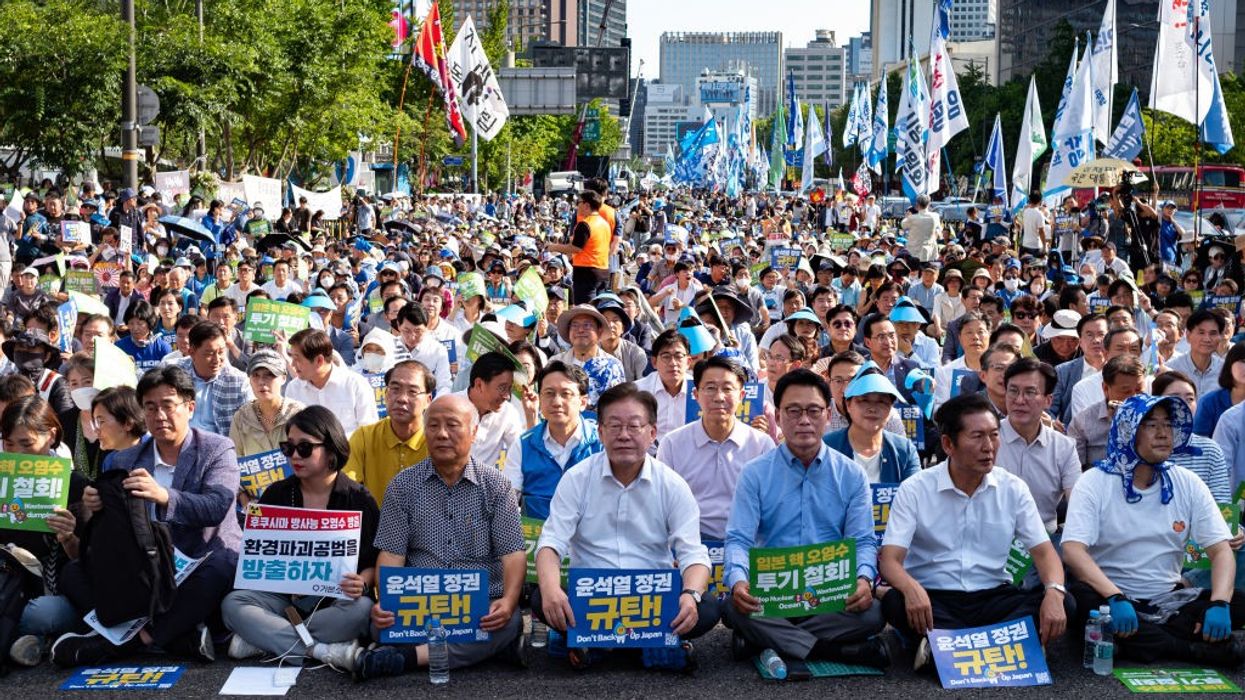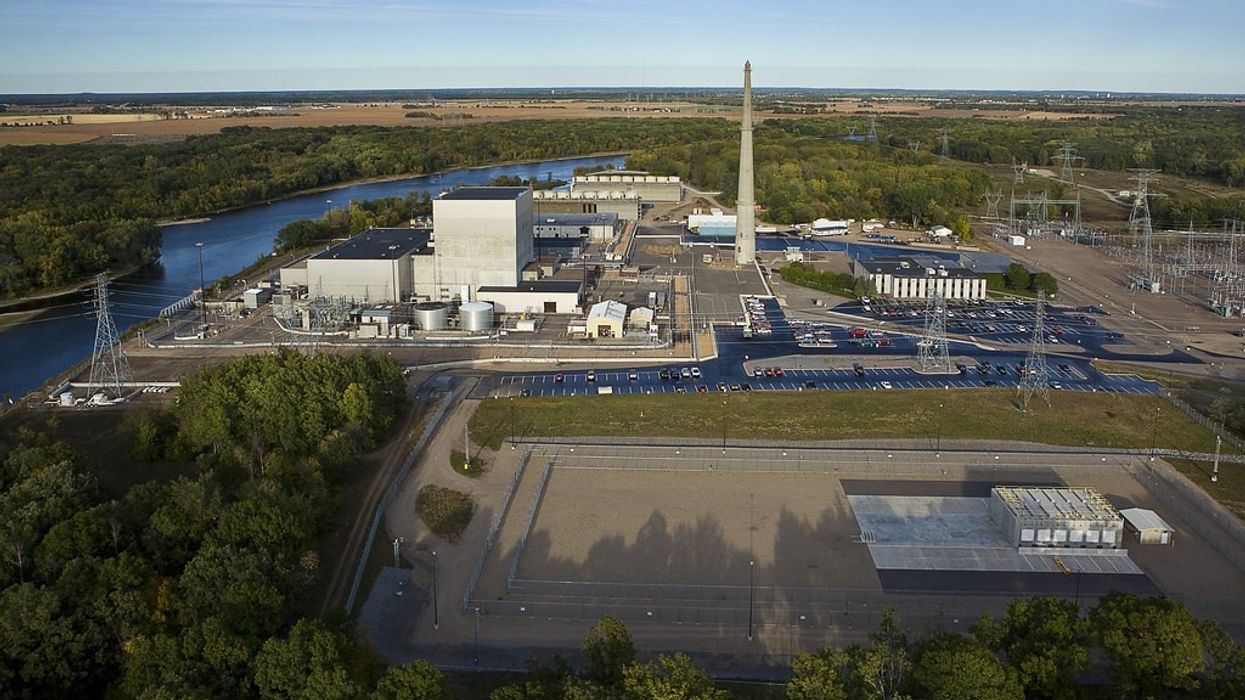Tens of Thousands in Seoul: 'Stop the Dumping of Radioactive Wastewater'
'It is time for the international community to step in and call out this clear breach of the international law'
South Koreans have continued a weekend rally against Japan's dumping of Fukushima nuclear plant's contaminated radioactive wastewater into the ocean by holding a large demonstration on Saturday.
The protesters, including fishermen, activists and politicians, shouted slogans such as "Immediately stop the marine dumping of radioactive wastewater" and "Prohibit import of all Japanese aquatic products," as they urged the South Korean government to file a lawsuit with the International Tribunal for the Law of the Sea against the Japanese government.
On August 24th, Japan began dumping radioactive water from the crippled Fukushima Daiichi nuclear power plant into the Pacific Ocean.
The move resulted in a massive backlash across Asia and around the world.
While South Korea's opposition Democratic Party leader Lee Jae-myung calls the Fukushima release an "act of terror," the country's government under President Yoon Suk Yeol has backed Japan's decision, Deutsche Welle explained. However, the release is unpopular with the public, with more than 80% opposing the release and more than 60% vowing not to eat Japanese seafood afterward, The Associated Press reported.
According to The Korea Herald:
Democratic Party of Korea head Rep. Lee Jae-myung, on the fourth day of a hunger strike, said he would call on the international community to join his party’s protests against the Japanese government over the water’s release, in a press conference on Sunday.
“The dumping of the wastewater contaminated with radioactive materials by Japan is in direct violation of the London Convention on marine pollution,” he said. “It is time for the international community to step in and call out this clear breach of the international law, stop Japan’s misbehavior and stand united to preserve marine safety.”
The main opposition leader said he penned a letter to the heads of states and governments of the 86 signatories of the London Convention to collectively rally against the release of the Fukushima wastewater.
Xinhua news reports:
"Fukushima nuclear-contaminated wastewater has the nature of trash," Lee Seo-yoon, a mother of three children, said during the rally, adding that Japan regards the ocean as the largest and the cheapest trash bag.
Lee stressed that it would be absurd to hope that no one would be harmed after dumping the trash into the ocean, urging Tokyo to store the radioactive wastewater on its soil rather than dumping it in the sea.
"The ocean is the future of my family and the future of our descendants," said Kim Sam-ho, a fisherman who came from the country's southern coastal Wando County.
Kim raised his strong doubts about the safety of the radioactive wastewater, calling for the South Korean government to take necessary actions including supporting measures for fishermen.
"The major purpose of nuclear safety is to block radiation from reaching the environment and people," said Han Byung-sub, a nuclear expert who had worked at the Korea Atomic Energy Research Institute (KAERI) and the Korea Electric Power Corp. Engineering & Construction (KEPCO E&C).
Han noted that the proper measurement of radiation from Fukushima, involving groundwater flowing in and out of the destroyed reactor, was not carried out, urging the South Korean government to properly measure the radiation in waters off the country from now on.
Following the one-and-a-half-hour rally, the protesters marched about five km in downtown Seoul to the presidential office.


